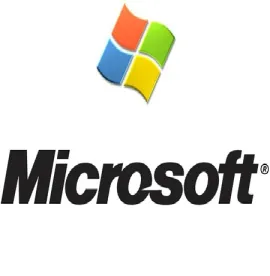For the first time, on June 16, 2015, the Federal Circuit Court of Appeals issued an opinion in which it reversed and remanded the Patent Trial and Appeal Board’s (PTAB) inter partes review (IPR) decision to invalidate patent claims. In Microsoft Corp. v. Proxyconn Inc. v. Michelle K. Lee, Director, U.S. Patent and Trademark Office, No. 2014-1542, -1543, slip. op. (Fed. Cir. June 16, 2015), the Federal Circuit determined, in part, that the PTAB had applied an unreasonably broad interpretation to certain claim terms in invalidating Proxyconn’s challenged patent.
Background
The PTAB instituted an IPR of Proxyconn’s U.S. Patent No. 6,757,717 (the ’717 patent) on 34 claims covering systems and methods for increasing data access in a packet switched network. Pursuant to that IPR proceeding, the PTAB determined that all but one of the challenged claims were unpatentable either as anticipated under 35 U.SC. § 102 or obvious under 35 U.S.C. § 103. The PTAB’s decision rested largely on its application of the “broadest reasonable interpretation” standard with respect to claim terms including “two other computers,” “sender/computer,” “receiver/computer” and “searching.”
During the IPR, the PTAB also denied Proxyconn’s motion to amend claims 1 and 3, and rejected Proxyconn’s argument that it did not need to establish patentability over a prior art reference that was not part of the original bases of unpatentability for which review of claims 1 and 3 was instituted. The prior art, however, was a reference over which the PTO instituted review of other claims.
Proxyconn appealed the PTAB’s decision arguing that (i) the broadest reasonable interpretation standard did not apply in PTAB proceedings; and (ii) the PTAB had erred in denying its motion to amend the claims 1 and 3. Microsoft appealed the decision as to the single claim determined patentable.
The Decision
In an opinion authored by Judge Prost, the Federal Circuit rejected Proxyconn’s argument that the broadest reasonable interpretation standard of claim construction is not applicable during IPR proceedings based on the its prior decision in In re Cuozzo Speed Techs, LLC, 778 F.3d. 1271 (Fed. Cir. 2015). However, in applying that standard, the Federal Circuit determined that the PTAB’s interpretation of two claim terms was unreasonably broad.
First, the PTAB’s interpretation of the term “two other computers” to include caching computers was held to be unreasonably broad when the claims were read in light of the specification and teachings in the ’717 patent. The specification made clear that “two other computers” was limited to “sender/computer” and “computer/receiver.” Second, the PTAB’s interpretation of the terms “sender/computer” and “receiver/computer” to encompass separate intermediary gateway and caching computers was also unreasonably broad, on the basis that the specification consistently referred to each as separate and distinct components of an overall system. Because the PTAB had invalidated claims 1, 3, 6, 7, 9, 10, 22, and 23 on the basis of that interpretation, the Federal Circuit vacated and remanded the PTAB’s determination that those claims were unpatentable.
With respect to Microsoft’s appeal, the Federal Circuit affirmed the PTAB’s interpretation of the term “searching” and rejected Microsoft’s interpretation, which the Court found would essentially equate “searching” with “comparing,” rendering the additional comparing language in the specification meaningless.
Finally, the Federal Circuit reviewed the PTAB’s decision to reject Proxyconn’s motion to amend claims 1 and 3 under a “clearly erroneous or inconsistent with the regulation or governing statutes” standard. Proxyconn challenged the PTAB’s use of the adjudicative Board decision in Idle Free Systems, Inc. v. Bergstrom, Inc., IPR2012-00027, 2013 WL 5947697 (PTAB June 11, 2013), rather than traditional notice and comment rule-making. But the Federal Circuit rejected Proxyconn’s challenge because “the choice between rulemaking and adjudication lies in the first instance within the [agency’s] discretion. Moreover, 35 U.S.C. § 318(b) requires the amended claims be determined to be patentable. Thus, the interpretation set forth in Idle Free - that the patentee “show patentable distinction [of the substitute claims] over the prior art” even when that prior art was not the bases for instituting the review - is also not clearly erroneous or inconsistent with the regulation or governing statutes. Interestingly, the Court in Proxyconn expressly refrained from endorsing another holding by the PTAB in Idle Free that amendments had to show patentable distinctions over all “prior art known to the patent owner.”
The Upshot
This is just the second time that the Federal Circuit has addressed the PTAB’s handling of an IPR proceeding – the first, In re Cuozzo, was the subject of much commentary. Unlike In re Cuozzo, in Proxyconn, the Federal Circuit found error in the PTAB’s application of the standard for claim construction. Previously, the Federal Circuit summarily affirmed PTAB decisions without written decision under Fed. Cir. R. 36. Since the introduction of the IPR proceeding with the AIA, challenged patent claims have been invalidated at a high rate, and the Federal Circuit’s affirmance of those decisions has rendered the threat of patent challenge in the PTAB a significant one. The Federal Circuit’s decision in this case should provide patentees some solace that such PTAB decisions will receive scrutiny on appeal.




 />i
/>i

